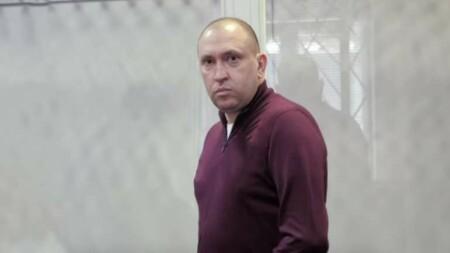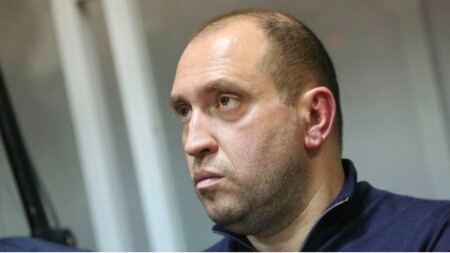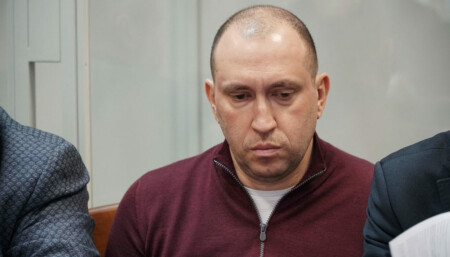Case description
The NABU and the SAPO accuse Vadym Alperin, Odesa-based businessman, of organizing a scheme to smuggle goods across the Ukrainian border. The state suffered over UAH 60 million in losses.
According to the prosecution, in mid-2016, Alperin established a criminal organization with structural units in Odesa and Kyiv. The group was joined by Alina Skomarova, former Director of the SFS Department; Serhii Tupalskyi, Deputy Chairman of Kyiv Customs; Alperin's colleagues Oleh Sebov and Yevhenii Iskold; and Serhii Shkuratov, a representative of private companies at the customs.
Alperin assigned the following tasks to the organization's members: importing textiles and light industry goods into Ukraine; acquiring or creating potential importing companies; delivering these goods to the customs office; bribing customs officials; paying understated customs duties to release these goods into circulation; filing customs declarations with understated customs values; and obtaining court decisions to adjust such understated customs values.
.jpg)
Customs did not check the risky companies of the Alperin's group, although the automatic system indicated the need for additional verification. Representatives of private enterprises filed customs declarations with an understated value of imported property. After that, Kyiv customs officials formally refused to accept the declared value, and then adjusted it without complying with the law. Even more so, the customs officials failed to send requests to the countries of origin (China, UAE) because then it would become clear that no export took place.
As a result, representatives of the companies filed claims to cancel such judgments with the Odesa District Administrative Court. Judges were forced to grant such claims, and as a result, the goods were cleared at a reduced value.
Prosecutors claim that Alperin attempted to influence all branches of power. He communicated with customs officers on social media, received official information from the Treasury, and allegedly corresponded on Telegram with the prosecutor of the GPO, who offered to “leak” information for money.
Materials from the pre-trial investigation were found in his email, including case files and plans for secret investigative actions. Also, according to the investigation, he ordered media stories to discredit investigators—payments for these reports included amounts of UAH 30,300 and $600.
In September 2017, NABU initiated the seizure of more than UAH 450 million from the companies involved in the transaction. Later, in December 2017, Alperin offered the NABU detectives a bribe of USD 800,000 to stop investigating the case and hand it over to the police, but the businessman was caught red-handed. Then the defense claimed that everything was the other way around.
The defendants' actions were classified under Article 255, Part 1; Article 212, Part 3, and Article 364, Part 2 of the Criminal Code of Ukraine.
In 2019, Volodymyr Zelenskyi even promised a valuable gift to NABU employees who would detain the Odesa businessman. In April 2021, Alperin was deprived of his citizenship, and later the National Security and Defense Council imposed personal sanctions on him.
In October 2023, the HACC closed Alperin's case due to the “Lozovyi Amendments,” as after notifying the individuals of suspicion, the terms of the pre-trial investigation should continue with the investigating judge. While the Prosecutor General had the right to extend the investigation for only up to three months, until a maximum of February 26, 2020, on January 16, 2020, he extended the term to six months, which violated Article 294, Part 3, Paragraph 1 of the Criminal Procedure Code. Furthermore, the Deputy Prosecutor General extended the terms twice—up to nine and twelve months (on May 13, 2020, and August 18, 2020), also in violation of the law. Meanwhile, the pre-trial investigation in this case was set to expire on November 26, 2019.
However, the HACC AC later canceled the closure of the case, considering that the extension of the investigation period was legitimate. The court pointed out that the criminal proceedings, which were merged for procedural reasons and are derivative, were initiated even before the entry into force of the “Lozovyi amendments.” That is, the old rules were applied to them, which allowed the Prosecutor General and his deputy to extend the terms.
Since the rules on limiting the terms of pre-trial investigation and the grounds for closing the case (Article 284, Part 1, Paragraph 10 of the Criminal Procedure Code) were introduced later, the appeal considers that they cannot be applied to this case.
In addition, the ECHR issued the judgment refusing to satisfy Alperin's complaints. The events investigated by the court in Strasbourg related to Alperin's detention by NABU detectives in November 2019, as well as the subsequent election of an interim measure for him and the recovery of UAH 35 million from the UAH 77 million bail due to a violation of procedural duties.
The ECHR found Alperin's arguments regarding the violation of his right to freedom of movement to be manifestly unfounded. Regarding the arguments about the violation of the presumption of innocence, the court stated that national procedures for the protection of rights had not been exhausted. The court considered the recovery of bail to the state income on its merits and found no violation of rights.































